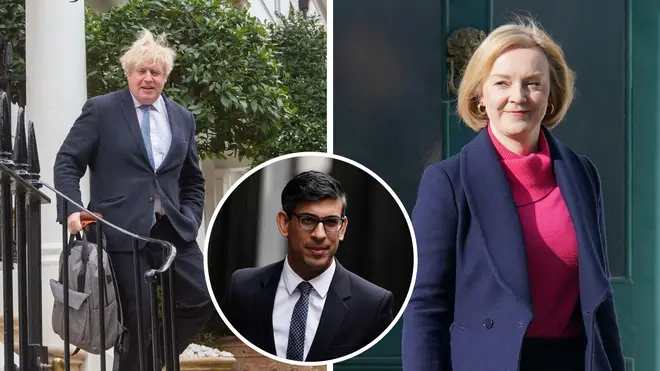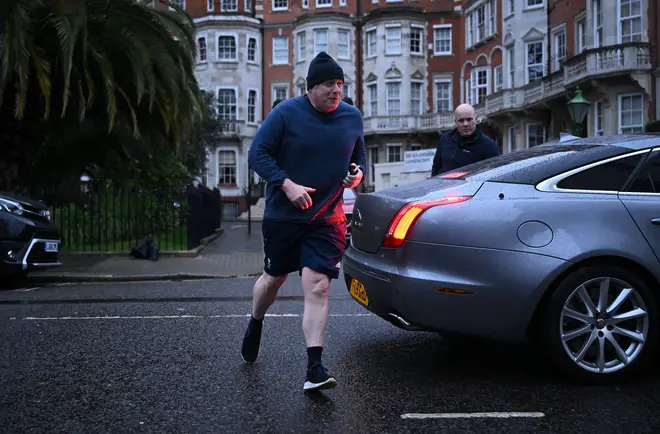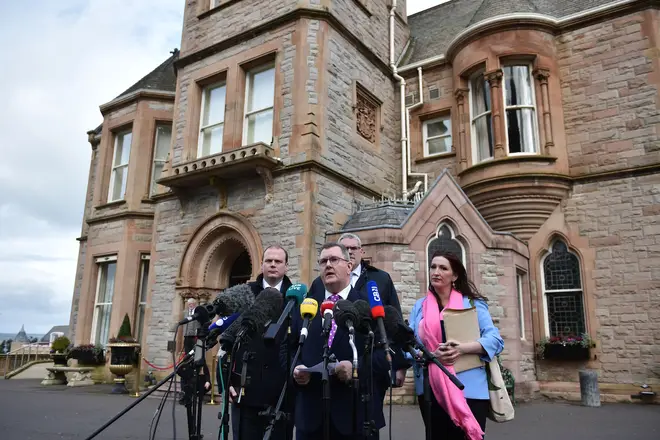
Iain Dale 7pm - 10pm
22 March 2023, 07:00 | Updated: 22 March 2023, 14:56

MPs have voted in favour of part of Rishi Sunak's Windsor Framework Brexit deal for Northern Ireland, despite a rebellion
Despite opposition from several high-profile Tory MPs including Boris Johnson, Liz Truss, Jacob Rees-Mogg and Priti Patel, the vote to implement the Stormont brake section of the Windsor Framework passed by 515 votes to 29.
Former prime minister Mr Johnson has argued that the Windsor Framework would mean that Northern Ireland is "captured" by EU laws, setting it apart from the UK, or that the UK was unable to "take advantage of Brexit.
"The proposed arrangements would mean either that Northern Ireland remained captured by the EU legal order - and was increasingly divergent from the rest of the U.K - or they would mean that the whole of the U.K. was unable properly to diverge and take advantage of Brexit," Mr Johnson said.

"That is not acceptable. I will be voting against the proposed arrangements today. Instead, the best course of action is to proceed with Northern Ireland Protocol Bill, and make sure that we take back control."
Two hours after Mr Johnson's announcement Liz Truss - who replaced him as Prime Minister - announced she would also vote against Mr Sunak's bill.
Her spokesman said: "After examining the detail of the Stormont Brake and Windsor Framework, Liz has decided to vote against the Statutory Instrument this afternoon.
"As the instigator of the Northern Ireland Protocol Bill, Liz has concluded that the Government’s latest deal with the EU does not satisfactorily resolve the issues thrown up by the Protocol and almost fatally impinges on the UK’s ability to diverge from EU rules and regulations."
It comes after a group of Eurosceptic Tories described one part of the agreement as "practically useless", dashing Mr Sunak's hopes of passing the bill without relying on Labour.
Read More: DUP to vote against Rishi Sunak's Windsor Framework in blow to new Brexit deal
The European Research Group (ERG) – so often a thorn in the side of PMs who have tried to pass deals with Brussels – described the "Stormont brake" as ineffective.
The mechanism is meant to stop EU law automatically applying to Northern Ireland without politicians there having a say on it.
The ERG chairman Mark Francois spoke after the so-called "Star Chamber" of lawyers tasked with looking over the Windsor Framework, agreed between Mr Sunak and the EU, delivered their verdict.

With Labour backing the Windsor Framework agreement signed last month, the Government should win the Commons division comfortably, despite criticism from some hardline Tory Brexiteers.
The Democratic Unionist Party (DUP) has already said its eight MPs will vote against the regulation to implement the Stormont brake as it continues to seek changes to the overall framework.
Mr Johnson is due to give a four-hour appearance in front of Parliament's Privileges Committee on Wednesday investigating claims he lied to the House of Commons over parties that took place in Number 10 during lockdown.
In his defence, which was published by the Privileges Committee on Tuesday morning, the former prime minister admitted to misleading the House of Commons.
But he insists that statements made in the Commons "were made in good faith and on the basis of what I honestly knew and believed at the time".